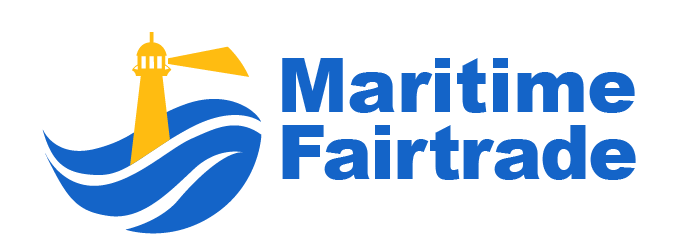In a post on a Facebook page of Filipino seafarers, a group member posted a question: How is it to work with women as seafarers? Of the about 30 comments and answers, only five acknowledged the skills and capabilities of women seafarers and cited their professionalism.
The rest were mainly jokes that had sexist elements in them (“Women seafarers? Let me give them a tour of my cabin and bed!”) or even veiled insults (“I just hope they never get seasick or become lazy when it’s that time of the month!”)
If the post and the responses to it are anything to go by, it is clear that there is still much to work on to ensure the maritime sector – like any other industry in the Philippines – does not discriminate against women.
International survey on women seafarers and harassment
Despite much efforts on both the local and international fronts to promote gender awareness in the maritime industry, the findings of an in-depth survey conducted jointly by three international maritime institutions, have revealed incidents of gender-based discrimination against women, onboard harassment, and bullying were still prevalent.
According to the online survey by The Women’s International Shipping & Trading Association (WISTA), International Seafarers Welfare and Assistance Network (ISWAN), and International Chamber of Shipping (ICS), many women seafarers from all over the world still experience discrimination at work.
The survey took into account the views and personal narratives of 1,128 women seafarers from 78 countries, including the Philippines. The biggest number of respondents came from the Philippines (399), followed by the United States (98), the United Kingdom (57), South Africa (51), Brazil (47), India (41), Peru (36), Columbia (35) and Indonesia (35).
Approximately 90 percent of all the respondents worked on cruise ships, while the rest worked on cargo ships, gas and oil tankers, and container ships, as well as general cargo vessels, chemical tankers, bulk carriers, and tugs.
Among all the respondents, 60 percent said they encountered gender-based discrimination onboard, and 66 percent said their male colleagues were guilty of harassing and intimidating female co-workers. A large percentage (25 percent) were also of the opinion that physical and sexual harassment was common in the shipping industry, taking place aboard ships and involving intrusions on women seafarers’ privacy.
While the majority of the respondents reported their own experiences and encounters with gender discrimination on board, the rest said they saw no such discrimination. On the other hand, 34 percent of the respondents said they have experienced feeling alienated or neglected because of their gender, and another 29 percent encountered harassment and bullying in the workplace.
Respondents also said they had been offensively approached and harassed via different means. 13 percent said they had been sent rude or lewd texts or videos. A shocking 70 percent said their experiences of being harassed were at the hands of their male colleagues. Harassment came in the form of personal questions and other intrusions on privacy.

Unacceptable male behavior
The worse forms of onboard harassment – beyond being asked personal questions –included being addressed with over-familiarity and being invited to visit male colleagues’ cabins for private reasons. Twenty-five of the respondents admitted they experienced such incidents. They said they were subjected to incidents of uncomfortable persuasion and became the recipient of inappropriate remarks, and body shaming comments.
According to WISTA, these incidents and the feedback from respondents showed the prevalence of onboard harassment. The majority of perpetrators were men (88 percent), while 11 percent of the time, the perpetrators were both men and women, and only one percent were women.

Harassment and bullying policy
Even as all these incidents of sexual harassment took place, 97 percent of respondents including those who experienced harassment said they knew that their respective companies had anti-harassment and bullying policies. This, WISTA pointed out, should be taken as a direct recommendation for companies to improve their efforts to publicize said policies, and increase their employees’ level of awareness. More stringent enforcement of policies is also needed.
Still, based on the survey, 80 percent said their immediate superiors had discussed with them the company’s anti-harassment policy, but 60 percent also said they still experienced harassment on board and were unsure of what to do when such incidents occur.
Reporting harassment
The respondents were also asked about their readiness to report incidents. It was discovered that while 73 percent of the respondents felt comfortable raising their concerns to their senior officers, only 13 percent did so and an even lower seven percent were satisfied with the results.
A significant 59 percent said they have faced gender-based discrimination when reporting, while 66 percent ended up feeling ignored.
When it came to the helplines that seafarers are encouraged to call when they are subjected to harassment, only 13 percent of the respondents used them. This, WISTA pointed out, spoke volumes about the efficiency or the perception of the efficiency of these helplines.

Women seafarers support each other
According to reports, while Filipinos accounted for a quarter of the world’s 1.6 million seafarers, only two percent of them were women, and the majority of them was in the service sector. They were also among the lowest paid in the seafaring industry, and were almost always the first to be let go during redundancy campaigns.
There were studies which revealed woman officers were also subjected to discrimination, even when they applied for shipboard internship and employment.
Kianne Ollera, 27, has finished only two contracts, but has already experienced harassment onboard. She said older seafarers, all of them men, considered harassing younger seafarers, especially women, as a kind of rite of passage.
“They think it’s just harmless fun and they say it’s supposed to make us tougher, but I think that’s all dangerous nonsense,” she said.
Kianne, a Filipino honors graduate from a local maritime school, said in her experience, male seafarers made degrading comments and jokes against female seafarers as a way to assert authority over them.
“It’s either that or machismo. I’ve heard some of my crew mates talked among themselves that women should not be allowed onboard because we’re supposedly weaker and ‘sensitive’, that we cannot take jokes. During my first contract, I experienced being yelled at and told I made mistakes because I was a woman. It was very frustrating, but I managed to ignore these comments,” she said.
Kianne admitted, however, there were times when she felt discouraged and wondered if she should just give up her dreams.
“Then again, I realized there were already so few women seafarers precisely because there were people who think and act like women do not belong in seafaring. I want to prove these people wrong,” she said.
Two other women seafarers, Innah Rubio and Laarni Grace Pangilinan, both in their late 20s, said they always hoped for the best when they worked onboard ships.
“I have been fortunate that the male seafarers I have worked with in my first two contracts were respectful. I was the only woman member of the crew, and my colleagues considered me as one of them. I also did my best not to act in any way that would suggest I was open to indecent jokes,” Innah said.
Laarni, for her part, said it was important for women seafarers to support one another and not tolerate any form of abuse.
“It’s unfair that we women seafarers have to be always on the defensive against sexual harassment and bullying. I think companies should work harder to give gender awareness talks and discussions, especially to the men,” she said.
Top photo credit: iStock/ kckate16
All other photos credit: Miriam College Women and Gender Institute










